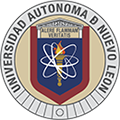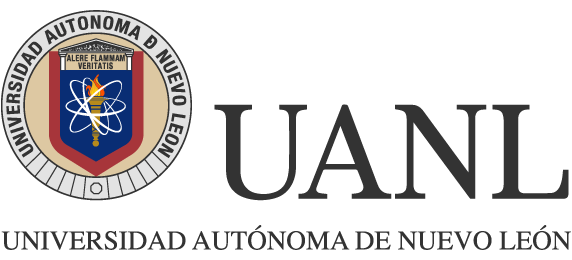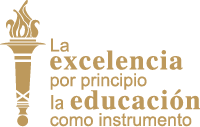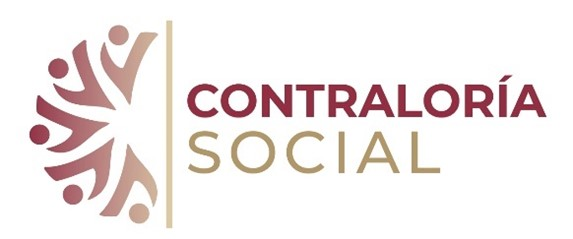Share:
Bachelor of Electronics and Communications Engineering
School of Mechanical and Electrical Engineering
Admission profile
Applicants to this academic program must have the following qualities:
- Ability to analyze and synthesize real-world problems.
- Study habits and willingness to work in teams.
- Interest in research and the application of mathematics and computer literacy.
Admission requirements
Academic
-Have successfully completed high school or equivalent studies
Legal
-Meet all criteria established by UANL current standards and procedures.
Testing
- Take the Admission Test EXANI-II, established by the National Center for the Evaluation of Higher Education (CENEVAL), the Selection Test, and the Engineering and Technology Diagnostic Test.
Program-specific
- Attend and pass the introductory courses for freshman students by UANL and the School of Mechanical and Electrical Engineering.
Graduation profile
Purpose:
To educate engineers who are fully capable of working with global technologies in the areas of electronics and communications at national as well as international environments.
General skills
Instrumental skills
- Following self-learning strategies at the different levels and fields of knowledge, enables effective decision-making in personal, academic, and professional areas.
- Following self-learning strategies at different levels and fields of knowledge enables effective decision-making in personal, academic, and professional areas.
- Employing information and communication technologies for accessing information that eventually becomes knowledge and promoting learning and collaborative work through innovative techniques, having a constructive involvement in society.
- Mastering the mother language in spoken and written form, learning to communicate correctly and adapt messages to specific contexts in order to disseminate ideas and scientific knowledge.
- Analyzing natural events and social movements through creative logical thinking in order to propose relevant decisions according to social responsibility and the graduate’s own professional field.
- Speaking a second language, especially English, for proper communication in common, academic, professional, and scientific settings.
- Making academic and professional proposals based on the best global practices in different disciplines to encourage collaborative work.
- Applying new and traditional research methodologies for personal development and knowledge generations.
Personal and interpersonal skills
- Committing to cultural and social diversity while complying with the integration principle to promote spaces of harmonious coexistence for local, national, and international contexts.
- Facing emerging social challenges with a critical approach and academic-professional commitment in order to consolidate the general wellbeing as well as sustainable development.
- Practicing UANL values in personal and professional settings: truth, equity, honesty, freedom, solidarity, respect for life and others, peace, respect for nature, integrity, ethics, and justice, contributing to a sustainable society.
Consolidating skills
- Making innovative proposals based on a holistic understanding of reality to help overcome global challenges.
- Taking dedicated leadership in encouraging significant changes to fulfill social and professional needs.
- Solving problems in academic and professional areas through specific techniques for proper decision-making.
- Adapting easily to uncertain social and professional environments to have better living conditions.
Specific skills
- Identifying, defining, designing, developing, as well as integrating analog or digital processes and systems in the fields of electronics and communications, such as landline or mobile phones, data networks, and radio frequency and optical systems, while ensuring their correct functioning through simulation and writing a clear report on the results.
- Installing, using, and maintaining the correct functioning of electronics and communications systems, preparing the necessary installation guides, system updates, and maintenance and training programs.
Specific engineering skills
- Analyzing the components of a device, equipment, system, or process, identifying the connections with each other, in order to obtain a structured, orderly, and coherent documentation of information received, including personal statements.
- Creating models in a mathematical language that can describe a system, phenomenon, or process behavior, setting out hypotheses to validate them using analytical methods or computational tools.
- Solving engineering problems using the appropriate methodology while applying established models based on basic sciences, verifying the obtained results with an analytical method or with the support of a technological tool. Therefore, the solution is relevant and feasible, complying with quality standards and safety policies.
- Applying methods and techniques of scientific and technological research while working in groups for the generation and application of knowledge aimed at the development of engineering projects.
Labor market
| Area | Jobs | |
|
Analysis, planning, and design of projects of research, development, as well as application of electronic and communications systems.
Design, install, maintain, and manage wired or wireless networks and telecommunications systems. Design, selection, and use of analog, digital, or hybrid equipment in microelectronics, computing, and telecommunication. Development, manufacture, and maintenance of electronic equipment for specific commercial purposes. Proposal of purchasing policies on electronic equipment for specific commercial purposes. Performance assessment of communication links according to national and international quality standards. Assistance in the improvement of communication link performance. Teaching at higher education institutions and advanced training in industrial areas. |
|
Graduation requirements
Academic
- Have completed the 220 total credits of the academic program.
- Have concluded the academic program in a minimum of 10 semesters and a maximum of 20 semesters.
- Have carried out the mandatory learning service
Legal
-Meet all criteria established by UANL current standards and procedures.
Program-specific
- Fill out the graduation survey and the UANL job bank application at the Learning Service and Business Office of the School of Mechanical and Electrical Engineering.
Accreditations
National
Name
CIEES Level 1
Accreditor
Interinstitutional Committees for the Evaluation of Higher Education
Accreditor's acronym
CIEES
http://www.ciees.edu.mxLocation
Posted by: Department of Undergraduate Studies




